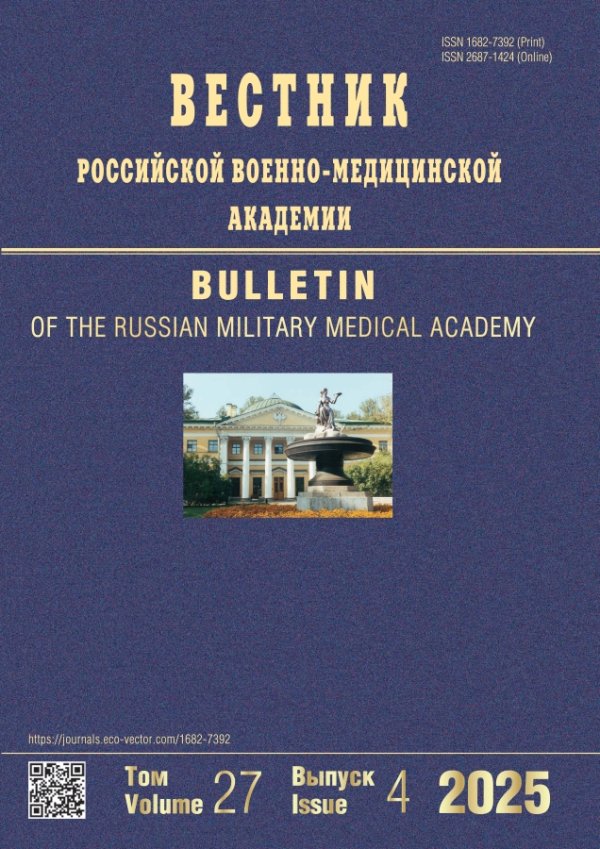Efficiency of high-fidelity simulation-based difficult airways management training of clinical ordinators
- Authors: Andreenko AA1, Arsentev LV1, Tsygankov KA1, Schegolev AV1
-
Affiliations:
- Военно-медицинская академия им. С.М. Кирова
- Issue: Vol 21, No 2 (2019)
- Pages: 228-232
- Section: Articles
- URL: https://journals.rcsi.science/1682-7392/article/view/25950
- DOI: https://doi.org/10.17816/brmma25950
- ID: 25950
Cite item
Full Text
Abstract
Full Text
##article.viewOnOriginalSite##About the authors
A A Andreenko
Военно-медицинская академия им. С.М. Кирова
Email: vmeda-nio@mil.ru
Санкт-Петербург
L V Arsentev
Военно-медицинская академия им. С.М. Кирова
Email: vmeda-nio@mil.ru
Санкт-Петербург
K A Tsygankov
Военно-медицинская академия им. С.М. Кирова
Email: vmeda-nio@mil.ru
Санкт-Петербург
A V Schegolev
Военно-медицинская академия им. С.М. Кирова
Email: vmeda-nio@mil.ru
Санкт-Петербург
References
- Долбнева, Е.Л. Анализ проблемы «трудных дыхательных путей» в России: особенности и перспективы. Ч. 1 / Е.Л. Долбнева [и др.] // Мед. алфавит. - 2016. - Т. 3, № 20 (283). - С. 9-13.
- Boet, S. Complex procedural skills are retained for a minimum of yr after a single high-fidelity simulation training session / S. Boet [et al.] // Br. J. Anaesth. - 2011. - № 107. - P. 533-539.
- Chadwick, M. Decoding individual episodic memory traces in the human hippocampus / M. Chadwick, [et al.] // Curr. Biol. - 2010. - № 20. - Р. 544-547.
- Chopra, V. Does training on an anaesthesia simulator lead to improvement in performance? / V. Chopra [et al.] // Br. J. Anaesth. - 1994. - № 73 (3). - Р. 293-297.
- Cook, T.M. Strategies for the prevention of airway complications - A narrative review / T.M. Cook // Anaesthesia. - 2018. - Vol. 73. - P. 93-111.
- Daunt, M. Evaluation of Human Factors in Airway Management Course / M. Daunt, [et al.] // J. Anesth. Clin. Res. - 2014. - Vol. 5, Issue 7. - Р. 416.
- Flin, R. Anaesthetists’ non-technical skills / R. Flin, [et al.] // Br. J. Anaesth. - 2010. - Vol. 105 (1). - P. 38-44.
- Flin, R. Human factors in the development of complications of airway management: preliminary evaluation of an interview tool / R. Flin, [et al.] // Anaesthesia. - 2013. - Vol. 68. - P. 817-825.
- Kennedy, C.C. Advanced airway management simulation training in medical education: a systematic review and meta-analysis / C.C. Kennedy, [et al.] // Crit Care Med. - 2014. - Vol. 42. - P. 169-178.
- Kuduvalli, P.M. Unanticipated difficult airway management in anaesthetized patients: a prospective study of the effect of mannequin training on management strategies and skill retention / P.M. Kuduvalli [et al.] // Anaesthesia. - 2008. - Vol.63 (4). - P. 364-369.
- Morgan, P. Efficacy of high-fidelity simulation debriefing on the performance of practicing anaesthetists in simulated scenarios / P. Morgan [et al.] // Br. J. Anaesth. - 2009. - Vol. 103. - P. 531-517.
- Price, J.W. High-fidelity simulation in anesthesiology training: a survey of Canadian anesthesiology ordinators’ simulator experience / J.W. Price [et al.] // Can. J. Anaesth. - 2010. - Vol. 57. - P. 134-42.
- Sheila, N. Myatra. Optimizing education in difficult airway management: meeting the challenge / N. Myatra Sheila [et al.] // Current Opinion in Anaesthesiology. - 2017. - Vol. 30 (6). - P. 748-754.
- Steadman, R.H. Simulation-based training is superior to problem- based learning for the acquisition of critical assessment and management skills / R.H. Steadman, [et al.] // Crit. Care Med. - 2006. - Vol. 34 (1). - P. 151-157.
- Sun, Y. Airway management education: simulation based training versus non-simulation based training-A systematic review and meta-analyses / Y. Sun [et al.] // BMC Anesthesiol. - 2017, Feb 1. - 17 (1). - P. 17.
- Yee, B. Nontechnical skills in anesthesia crisis management with repeated exposure to simulation-based education / B. Yee, [et al.] // Anesthesiology. - 2005. - Vol. 103 (2). - P. 241-248.
- Yunoki, K. The role of simulation training in anesthesiology resident education / K. Yunoki T. Sakai // J. Anesth. - 2018. - Vol. 32 (3). - P. 425-433.
Supplementary files







